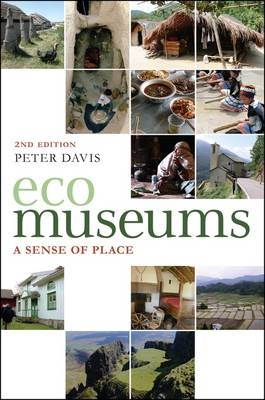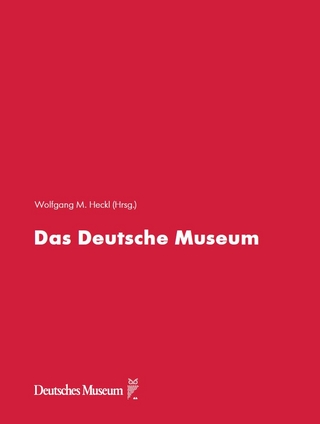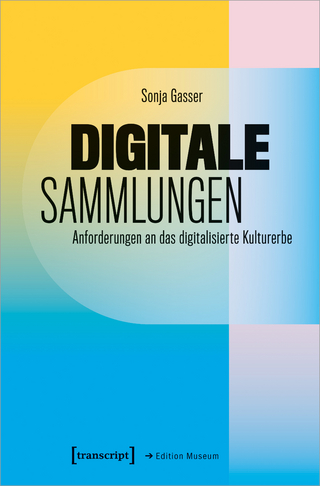
Ecomuseums
A Sense of Place
Seiten
2011
|
2nd Revised edition
Continuum International Publishing Group Ltd. (Verlag)
978-1-84706-257-4 (ISBN)
Continuum International Publishing Group Ltd. (Verlag)
978-1-84706-257-4 (ISBN)
- Titel ist leider vergriffen;
keine Neuauflage - Artikel merken
The ecomuseum phenomenon has grown dramatically. There is no one ecomuseum model, but a philosophy that has been adapted and moulded for use in a variety of situations. This edition covers theories and practices that have resonance with ecomuseums, such as the notions of cultural landscapes, intangible cultural heritage, and biosphere reserves.
This updated second edition reference work looks at recent developments in the field internationally and in terms of new theories and practices. The ecomuseum phenomenon has grown dramatically in recent years. There is now no one ecomuseum model, but a philosophy that has been adapted and moulded for use in a variety of situations. With many more ecomuseums being established, the international appeal and reach of the idea grows; these changes are reflected in the 'geographical' sections of this volume. Of particular significance is the rise in ecomuseology in India, China (including Taiwan), Japan, Thailand, Vietnam, and Cambodia, as well as significant increases in Italy, Poland, the Czech Republic, and Turkey. This edition has been updated to cover recent theories and practices that have resonance with ecomuseums, such as the notions of cultural landscapes, intangible cultural heritage, biosphere reserves, slow cities, slow food, ecovillages, and cultural tourism. It also looks at the huge changes in electronic communication that have led to notions of virtual ecomuseums and new approaches to making meaning of places and objects.
This updated second edition reference work looks at recent developments in the field internationally and in terms of new theories and practices. The ecomuseum phenomenon has grown dramatically in recent years. There is now no one ecomuseum model, but a philosophy that has been adapted and moulded for use in a variety of situations. With many more ecomuseums being established, the international appeal and reach of the idea grows; these changes are reflected in the 'geographical' sections of this volume. Of particular significance is the rise in ecomuseology in India, China (including Taiwan), Japan, Thailand, Vietnam, and Cambodia, as well as significant increases in Italy, Poland, the Czech Republic, and Turkey. This edition has been updated to cover recent theories and practices that have resonance with ecomuseums, such as the notions of cultural landscapes, intangible cultural heritage, biosphere reserves, slow cities, slow food, ecovillages, and cultural tourism. It also looks at the huge changes in electronic communication that have led to notions of virtual ecomuseums and new approaches to making meaning of places and objects.
Peter Davis is Professor of Museology at Newcastle University and Guest Professor of Museology at Museion, Goteborg University, Sweden. His research interests include the history of museums, the history of natural history and environmentalism, and ecomuseums. He is the author of several books, including Museums and the Natural Environment (1996) and (with Christine Jackson) Sir William Jardine: a life in natural history (2001), also published by Continuum.
Introduction; Preface to 2nd Edition; Historical and Philosophical background; Ecomuseums: An overview; Re-Evaluating the Ecomuseum; Conclusion.
| Erscheint lt. Verlag | 31.3.2011 |
|---|---|
| Zusatzinfo | 20 bw illustrations |
| Verlagsort | London |
| Sprache | englisch |
| Maße | 156 x 234 mm |
| Themenwelt | Kunst / Musik / Theater |
| Geisteswissenschaften ► Geschichte ► Hilfswissenschaften | |
| ISBN-10 | 1-84706-257-1 / 1847062571 |
| ISBN-13 | 978-1-84706-257-4 / 9781847062574 |
| Zustand | Neuware |
| Haben Sie eine Frage zum Produkt? |
Mehr entdecken
aus dem Bereich
aus dem Bereich
Anforderungen an das digitalisierte Kulturerbe
Buch | Softcover (2023)
transcript (Verlag)
29,00 €


